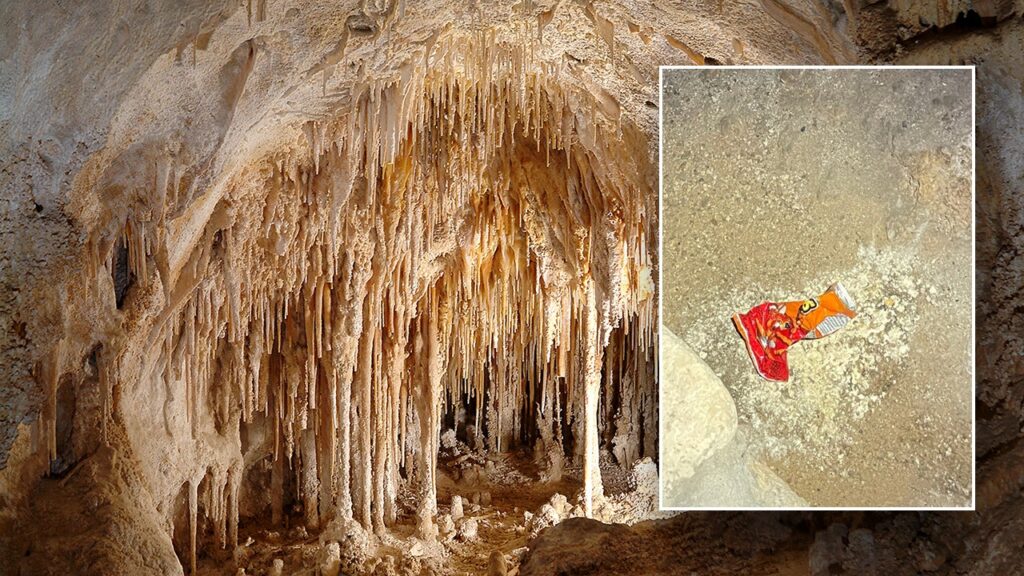The recent incident at Carlsbad Caverns National Park in New Mexico serves as a significant reminder of the impact human actions can have on sensitive ecosystems. In an unexpected but pointed social media post, National Park Service officials reacted to the discovery of a discarded bag of Cheetos within the beloved cave system. The post featured an image of the full snack bag, situated in the expansive Big Room area, which is often frequented by thousands of visitors each day. The park service combined their serious message with a touch of humor, highlighting the dual nature of human interaction with nature—both positive and negative.
The Facebook post began with the fundamental truth that “great or small, we all leave an impact wherever we go.” It emphasized how the choices we make in our daily interactions echo throughout our shared environments. The rangers expressed their gratitude for the enjoyable moments they experience when visiting guests share friendly interactions or when they witness the dawn’s early light illuminating the caves alongside fellow nature enthusiasts. However, the posting also touched on the less delightful moments when rangers must deal with the fallout of careless visitor actions, such as the neglectful disposal of snacks or failing to bring adequate supplies, including sunscreen.
Carlsbad Caverns is a unique and delicate environment, and officials acknowledged the challenges of maintaining the integrity of such a place. While incidental impacts—like the inevitable lint deposited from every visitor’s clothing—are almost impossible to prevent, the park authorities made it clear that some impacts are entirely avoidable. The bag of Cheetos left behind was singled out as an example of this avoidable harm. What may appear to be a trivial oversight by a visitor can have devastating effects on the cave’s fragile ecosystem.
“The impact is likely incidental to the snack’s owner,” the post explained. “But to the ecosystem of the cave, it had a huge impact.” The description continued, illustrating how the processed corn in the cheesy snack became a breeding ground for fungi and microbial life, thanks to the cave’s humidity. These organisms not only proliferate within the snack but can also spread contaminants. Insects, such as cave crickets, mites, and even spiders can discover and consume the nutrients in this snack, dispersing them throughout the cave’s environment. The mold resulting from the snack also poses its own set of problems, as it has the potential to grow and release unpleasant odors.
Park rangers dedicated 20 minutes to meticulously cleaning the cave surfaces, removing traces of foreign materials and molds that had formed from the discarded snack. Their efforts highlight not only the labor involved in maintaining such a pristine environment but also the unintended consequences visitors can create. The park service reiterated that while certain cave-dwelling organisms are native and accustomed to such environments, many molds and microbes introduced through human disregard are not, thereby disrupting the local ecosystem.
The takeaway message from Carlsbad Caverns’ officials was clear: while a snack left behind might seem inconsequential from a human perspective, in the context of the cave’s delicate ecosystem, it can have far-reaching consequences. The phrase, “great or small, we all leave an impact wherever we go,” serves as a poignant reminder for everyone—whether they are hiking, exploring, or simply enjoying nature. The message concluded with a call to action, urging all visitors to be mindful of their actions and to leave the natural world in a better state than how they found it.
In summary, the incident at Carlsbad Caverns highlighted both the beauty and fragility of natural environments and the importance of individual accountability while enjoying such places. The clever juxtaposition of seriousness and humor in the park’s social media message resonates as a reminder that our interactions with nature matter deeply and can influence the health of ecosystems today and for future generations.



